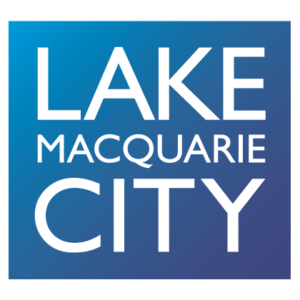Our journey
What council has achieved in the past in energy efficiency, renewable energy, sustainable transport or broader sustainability
Lake Macquarie City Council is recognised as a leader in sustainability and is proud to be proactively tackling greenhouse gas emissions, making the switch to clean energy and enabling sustainable transport.
Through its greenhouse gas reduction policy, Council has successfully reduced its greenhouse gas emissions by 30 per cent since 2007 (to end of 2017-2018 Financial Year) while achieving a 6.08 per cent reduction in emissions city-wide, despite the City’s rapid growth and development.
Energy consumption and efficiency has been a priority and we have worked with our community to achieve a 21.6 per cent reduction in residential energy use per household from our 2007 baseline, supported by a high uptake of solar power systems, with 12,680 total connections exporting 29,014 megawatt hours of electricity to the grid in the 2017-2018 Financial Year.
To further encourage renewable energy uptake in our community we have spearheaded an innovative partnership with community renewable energy group Pingala to deliver a 60-kilowatt community-funded solar system for major community service provider Allambi Care.
Our commitment to renewables has so far seen us install 1.38 megawatts of solar panels across 27 Council buildings with our installation program projected to continue until 2022-2023. Our initial target to achieve 200 kilowatts of solar generating capacity was trebled as part of our 2014 Environmental Sustainability Action Plan, and we hit our new target of 600 kilowatts in 2018, five years ahead of schedule.
The Museum of Art and Culture Lake Macquarie has been recognised as one of the most sustainable exhibition spaces in regional Australia after switching to a state-of-the-art lighting system and installing 162 photovoltaic cells, which have reduced energy consumption from the grid.
Across our local government area, Council is improving energy efficiency with its rollout of 5600 LED streetlights, and has replaced more than 2000 fluorescent lights with LEDs at community facilities.
Our geographically dispersed City, which wraps around one of Australia’s largest saltwater lakes, presents many challenges for sustainable transport. We have implemented a comprehensive Cycling Strategy that has vastly improved our cycling infrastructure and we continue to advocate for fast rail and improved public transport. Council has also embarked on a forward-thinking Electric Vehicle Charging strategy, and has set to work installing charging stations at key locations within the City.
What council hopes to achieve in the future in energy efficiency, renewable energy, sustainable transport or broader sustainability
Council’s newly adopted Environmental Sustainability Strategy and Action Plan sets out Council’s work to achieve greater sustainability over the next seven years (2020-2027). Under this Strategy, we’re aiming to achieve a 57 per cent reduction in City-wide per capita and total Council greenhouse gas emissions from our 2007 baseline. Our aim is to see 80 per cent of our residents take positive actions to source renewable energy, conserve water or use active transport modes, with a target to increase active transport to 15 per cent of total trips.
We plan to facilitate Council’s transition to 100 per cent renewable electricity supply by supplementing on-site renewables with energy from renewable resources. This will include strategic procurement of off-site renewables that support the national and regional transition to renewable energy.
Technological innovation is a key driver of energy efficiency. We will trial battery technology at Council sites with solar PV installed and deploy optimisation systems incorporating smart monitoring and control across Council assets to minimise energy and water demand and facilitate proactive maintenance.
We will support sustainable transport through our new framework, Walking and Cycling for Better Streets, Places and Transport which, along with our Parking Strategy and Transport Management Plans for our nine economic centres, will guide us in planning better walking and cycling experiences and active transport options across our growing City. Our Circular Economy Framework is being developed to reflect international best practice to design waste out of the system, use finite resources responsibly, support a renewable energy transition, future-fit existing businesses and attract innovators to our region.
What council hopes to gain from being a member of the Cities Power Partnership
Our Environmental Sustainability Strategy and Action Plan 2020-2027 sets ambitious targets for energy efficiency, renewable energy, sustainable transport and broader sustainability. We will ensure our Cities Power Partnership pledges, to be selected with community consultation, align to and support achievement of these targets. We welcome the opportunity to connect and collaborate with other councils, share our learnings, tap into leading research and innovation, and be open and accountable in monitoring and achieving these goals for our City and region.
